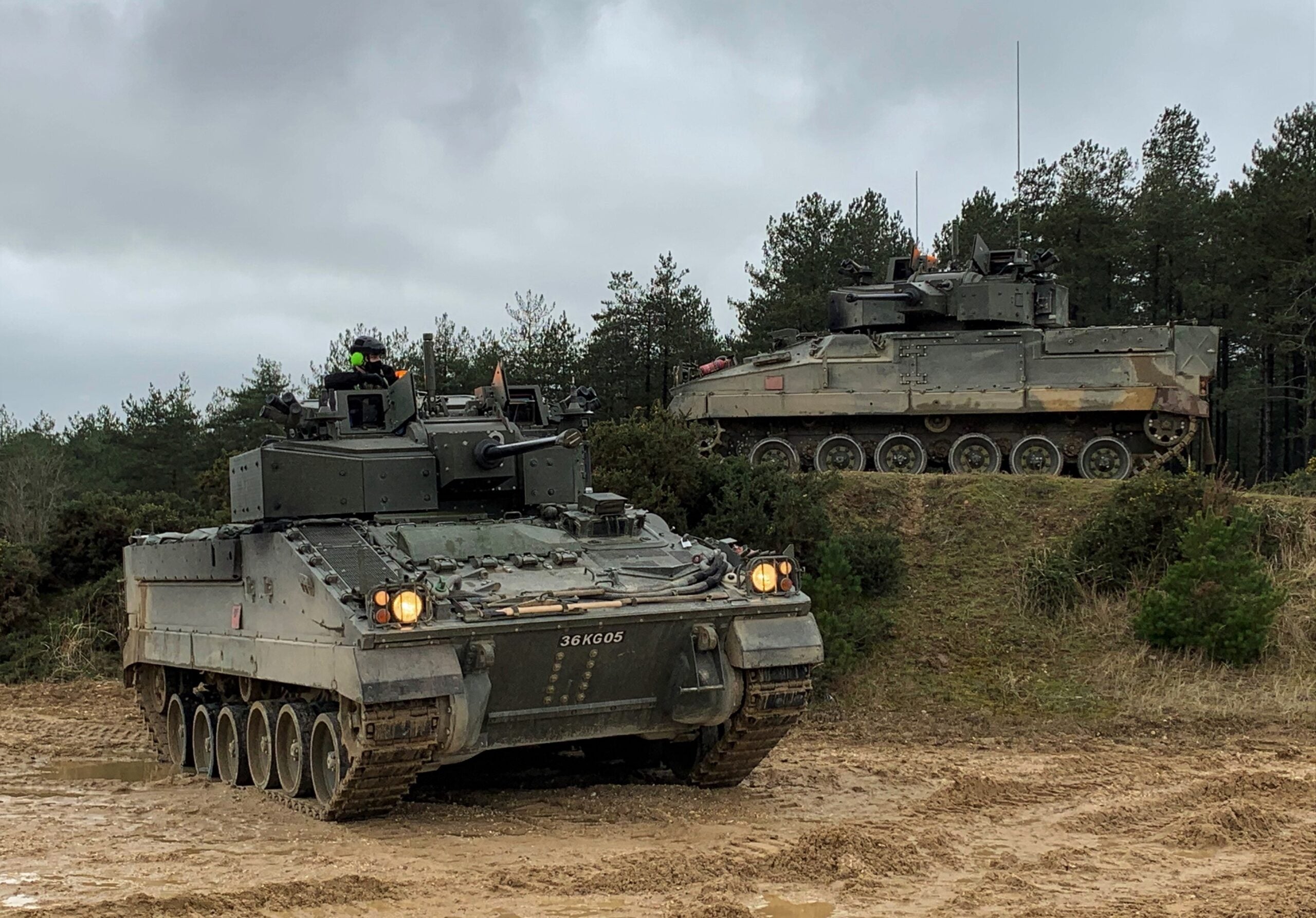
Lockheed Martin today announced the loss of 158 jobs at its Ampthill armoured vehicles business following the UK Ministry of Defence’s (MOD) decision to terminate the Warrior Capability Sustainment Programme (CSP).
The termination of the programme was announced in the UK’s recently published Defence Command Paper, ending hopes for a production contract worth around £1bn that would have extended the in-service life of the UK’s Warrior infantry fighting vehicles (IFV) and seen them equipped with a new 40mm cannon.
Lockheed Martin said the loss of the 158 jobs was a ‘direct result’ of the decision to terminate the programme and followed a company review of the workforce and workload at the Ampthill site.
The defence command paper confirmed long-rumoured plans to retire the UK’s fleet of Warrior IFVs. Instead, the British Army’s Warrior capability will be replaced by the incoming Boxer Mechanised Infantry Vehicle (MIV) by the middle of the decade.
The British Army’s order of Boxer vehicles is set to be accelerated; the paper also mentions expanding the capability of Boxer.
Lockheed Martin Ampthill vice president and general manager Lee Fellows said: “Despite the need for this workforce reduction, we remain a strong business, with a very talented, dedicated team. This exercise will ensure that we maintain competitiveness by delivering affordable products and services to customers while positioning for future growth opportunities that will benefit the facility in the longer term.
“We remain committed to supporting impacted employees and providing whatever assistance we can during this difficult time.”
Lockheed Martin also manufactures the turrets for the British Army’s new AJAX vehicles at Ampthill. The site is part of the company’s Missiles and Fire Control business unit that currently employs around 900 staff.
The company added that work in support of AJAX, classified special projects and mission support ‘remain unaffected’.
Had the programme not been cancelled, Lockheed Martin had anticipated that a manufacturing contract could have been wrapped up by the end of 2021.
Before the Defence Command Paper was published, Army Technology reported that cutting the programme could set back years of work to rebuild the UK’s turret design capability as the AJAX and Warrior CSP turrets were the first to be designed in the UK since Challenger 2 Main Battle Tanks in the 1990s and the original Warrior IFV’s in the 1980s.
Ahead of the publication of the Integrated Review, in February, Lockheed Martin’s Warrior CSP programme director Keren Wilkins told reporters that the company did feel ‘vulnerable’ to being cut by the MOD.
In the same month, Lockheed Martin announced that the vehicle had completed 80% of its reliability growth trials – equivalent to 95 battlefield missions.
Before the cancellation of Warrior CSP, Lockheed Martin estimated the programme would have amounted to about a third of the workload of Ampthill had the system gone into production.
Last year, a KPMG report commissioned by Lockheed Martin said that a production contract for Warrior CSP would have added up to £1bn to the UK economy. Around 80% of the Warrior CSP solution was sourced from British suppliers.
The KPMG report added that a contract for the production of 275 vehicles between 2021 and 2029 would have delivered 100 annual Full-Time Equivalent (FTE) jobs and up to 2,000 annual FTE jobs through the supply chain and direct employment at the peak of production.
KPMG also found that a production contract could have generated £278.9m in direct Gross Value Added (GVA), £484.3m in indirect GVA from the supply chain and £280.4m in GVA created through Lockheed Martin employees spending Warrior CSP-related wages.
The programme was comprised of three parts; the Warrior Fightability Lethality Improvement Programme (WFLIP), Warrior Enhanced Electronic Architecture (WEEA), Warrior Modular Protection System (WMPS).


